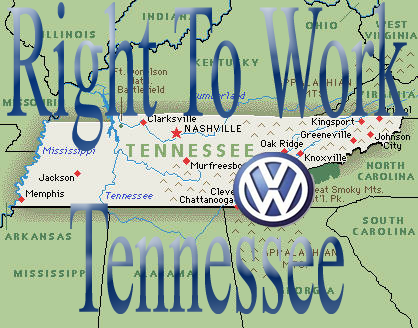Right to Work State Economies Grow Faster
Private-Sector Employees and Employers Alike Reap Major Benefits (Source: July 2011 NRTWC Newsletter) Today, American employees and employers across the country are working hard and using their ingenuity to help their businesses recover from the severe 2008-2009 recession. Unfortunately, an array of laws and regulations imposed by the U.S. Congress and federal bureaucrats are hindering the efforts of workers, managers, and business owners. And the federal policies that authorize the firing of roughly 6.3 million private-sector employees should they refuse to pay union dues or fees as a job condition are among the very worst, if not the worst, obstacles to economic recovery. One indication of the damage wrought by the pro-forced unionism provisions in the National Labor Relations Act (NLRA) and the Railway Labor Act (RLA) is the state-by-state gross domestic product (GDP) data reported by the U.S. Commerce Department's Bureau of Economic Analysis. According to BEA data, from 2000 to 2010, the combined real output of the 22 states with Right to Work laws protecting employees from the forced-union-dues provisions in the NLRA grew by 21.8%. That percentage gain is well over half again as large as the combined real 2000-2010 growth of the 28 states that still do not protect employees from forced union dues. To put it another way, had the entire country grown by as much as current Right to Work states did over just this ten-year period, by 2010 our national GDP would have been $13.674 trillion in constant, "chained" 2005 dollars, roughly $575 billion above the actual figure. Forced Dues Not Justified, Morally or Economically


